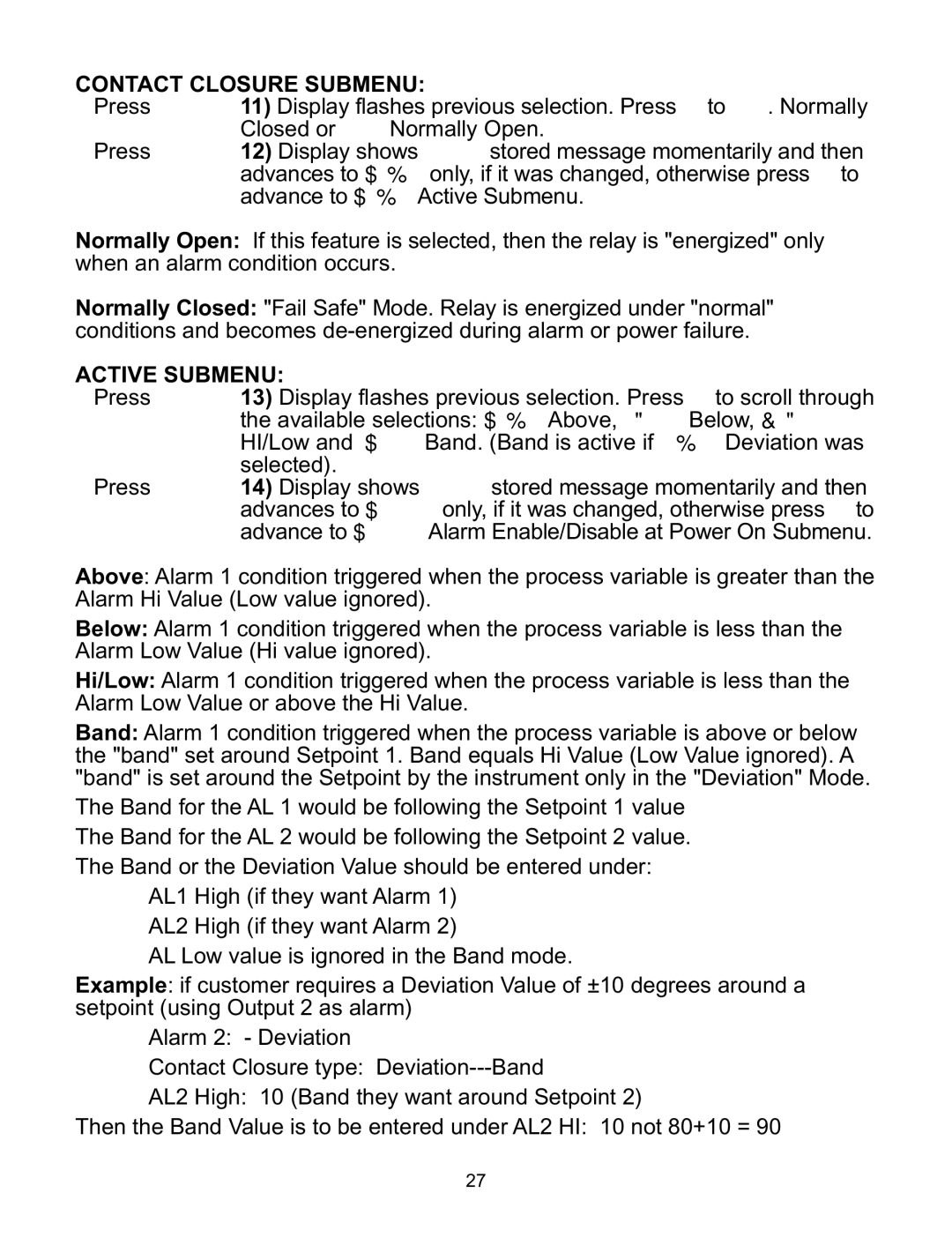CONTACT CLOSURE SUBMENU:
Press d 11) Display flashes previous selection. Press b to N.ç. Normally Closed or N.o. Normally Open.
12) Display shows STRD stored message momentarily and then advances to AçTV only, if it was changed, otherwise press a to advance to AçTV Active Submenu.
Normally Open: If this feature is selected, then the relay is "energized" only when an alarm condition occurs.
Normally Closed: "Fail Safe" Mode. Relay is energized under "normal" conditions and becomes
ACTIVE SUBMENU:
Press d 13) Display flashes previous selection. Press b to scroll through the available selections: ABoV Above, BELo Below, HI.Lo HI/Low and BAND Band. (Band is active if _DEV Deviation was selected).
Press d 14) Display shows STRD stored message momentarily and then advances to A.P.oN only, if it was changed, otherwise press a to
advance to A.P.oN Alarm Enable/Disable at Power On Submenu.
Above: Alarm 1 condition triggered when the process variable is greater than the Alarm Hi Value (Low value ignored).
Below: Alarm 1 condition triggered when the process variable is less than the Alarm Low Value (Hi value ignored).
Hi/Low: Alarm 1 condition triggered when the process variable is less than the Alarm Low Value or above the Hi Value.
Band: Alarm 1 condition triggered when the process variable is above or below the "band" set around Setpoint 1. Band equals Hi Value (Low Value ignored). A "band" is set around the Setpoint by the instrument only in the "Deviation" Mode.
The Band for the AL 1 would be following the Setpoint 1 value The Band for the AL 2 would be following the Setpoint 2 value. The Band or the Deviation Value should be entered under:
AL1 High (if they want Alarm 1) AL2 High (if they want Alarm 2)
AL Low value is ignored in the Band mode.
Example: if customer requires a Deviation Value of ±10 degrees around a setpoint (using Output 2 as alarm)
Alarm 2: - Deviation
Contact Closure type:
AL2 High: 10 (Band they want around Setpoint 2)
Then the Band Value is to be entered under AL2 HI: 10 not 80+10 = 90
27
